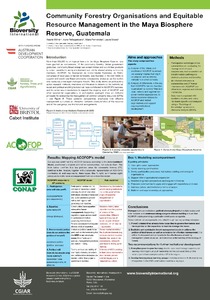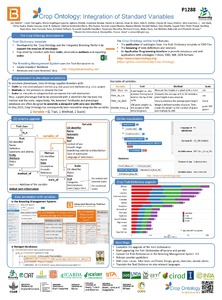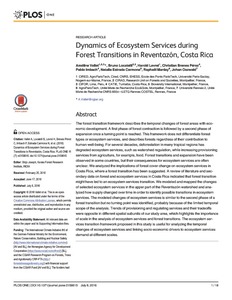Location
Bioversity International is a global research-for-development organization. We have a vision – that agricultural biodiversity nourishes people and sustains the planet.
We deliver scientific evidence, management practices and policy options to use and safeguard agricultural and tree biodiversity to attain sustainable global food and nutrition security.
We work with partners in low-income countries in different regions where agricultural and tree biodiversity can contribute to improved nutrition, resilience, productivity and climate change adaptation.
Members:
Resources
Displaying 31 - 35 of 184Community forestry organizations and equitable resource management in the Mayo Biosphere Reserve, Guatamala
Community forestry organizations and equitable resource management in the Mayo Biosphere Reserve, Guatamala
Crop ontology: integration of standard variables
The Crop Ontology (CO, http://www.cropontology.org/) is a resource of the Integrated Breeding Platform (IBP, http://integratedbreeding.net/) providing breeders with crop specific terms for fieldbook edition and data annotation. Until Mai 2015, a plant phenotype was annotated with 3 CO identifiers for the trait, the method and the scale, respectively. Yet, breeders’ fieldbook and most phenotypic databases are designed to annotate a datapoint with only one identifier.
Crop ontology: integration of standard variables
Dynamics of ecosystem services during forest transitions in Reventazón, Costa Rica
The forest transition framework describes the temporal changes of forest areas with economic development. A first phase of forest contraction is followed by a second phase of expansion once a turning point is reached. This framework does not differentiate forest types or ecosystem services, and describes forests regardless of their contribution to human well-being. For several decades, deforestation in many tropical regions has degraded ecosystem services, such as watershed regulation, while increasing provisioning services from agriculture, for example, food.





